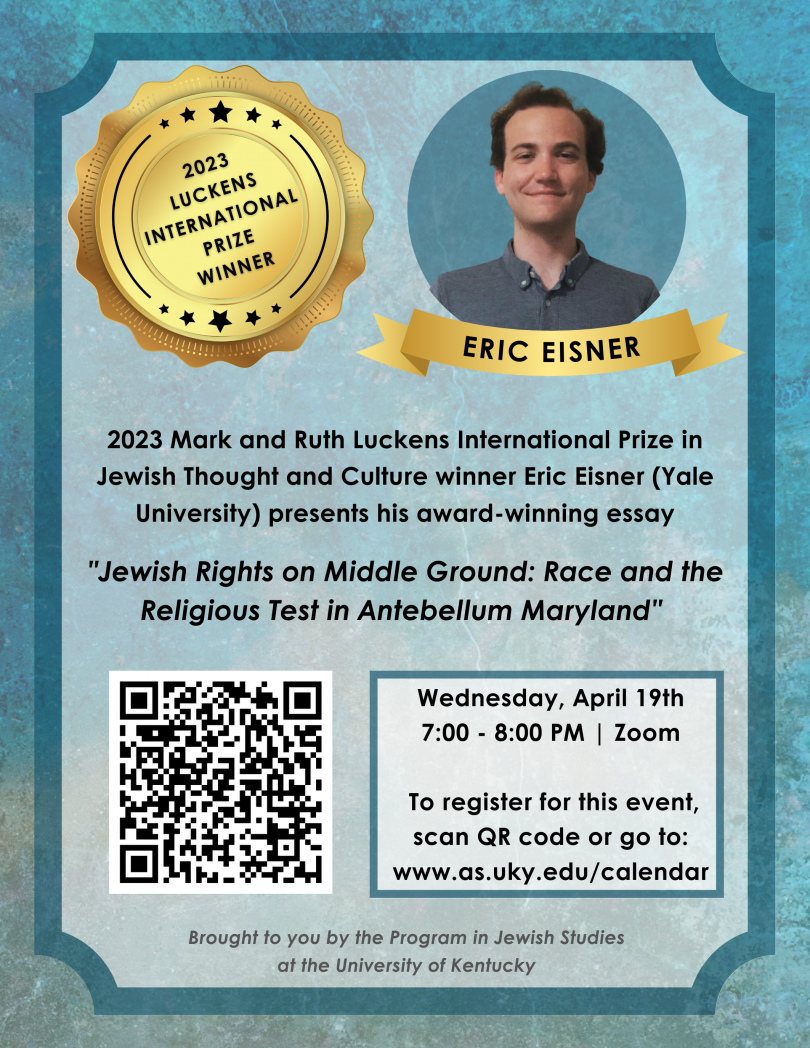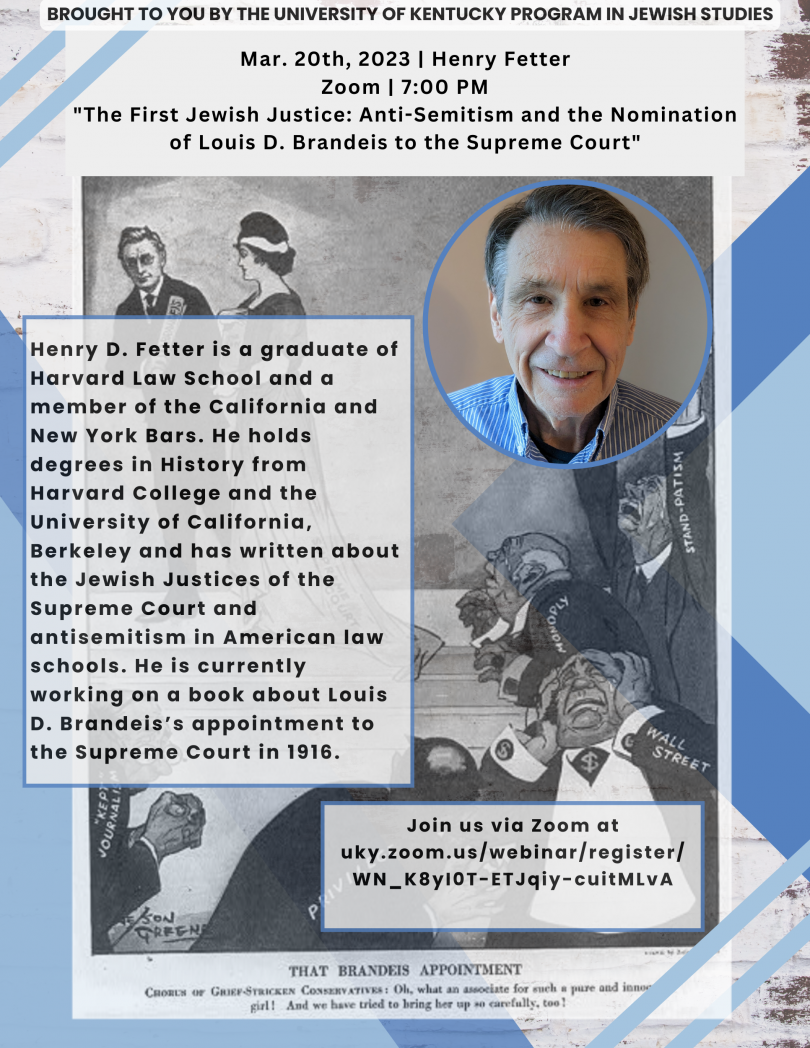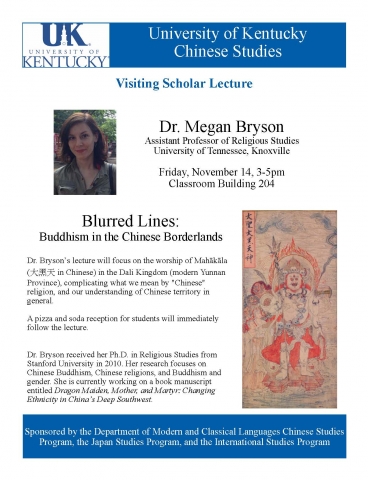2023 Luckens Prize Winner Eric Eisner presents "Jewish Rights on Middle Ground: Race and the Religious Test in Antebellum Maryland"
2023 Mark and Ruth Luckens International Prize in Jewish Thought and Culture winner Eric Eisner (Yale University) presents his award-winning essay, "Jewish Rights on Middle Ground: Race and the Religious Test in Antebellum Maryland."
The presentation will take place via Zoom. Please click the following link to register for this special event!
https://uky.zoom.us/webinar/register/WN_FR8l4qeLRB64l-R36LiDnw#/registration

Biography:
Eric Eisner is a J.D. candidate at Yale Law School. He has a B.A. from the University of Pennsylvania and an MPhil in American history from the University of Cambridge. His work has appeared in Southern Jewish History and the Journal of Religious History.
About the talk:
The 1826 Maryland Jew Bill allowed Jewish men to hold political office and positions of public trust. Historians have previously situated the Jew Bill in the politics of Maryland and as part of the religious and legal history of the United States, but they have not considered the importance of race. Maryland, a slave state that also possessed the nation’s largest free Black population, was the country’s “middle ground,” and the state’s racial politics form a necessary context to understand Jewish rights and the redefinition of citizenship in Maryland and the United States.


